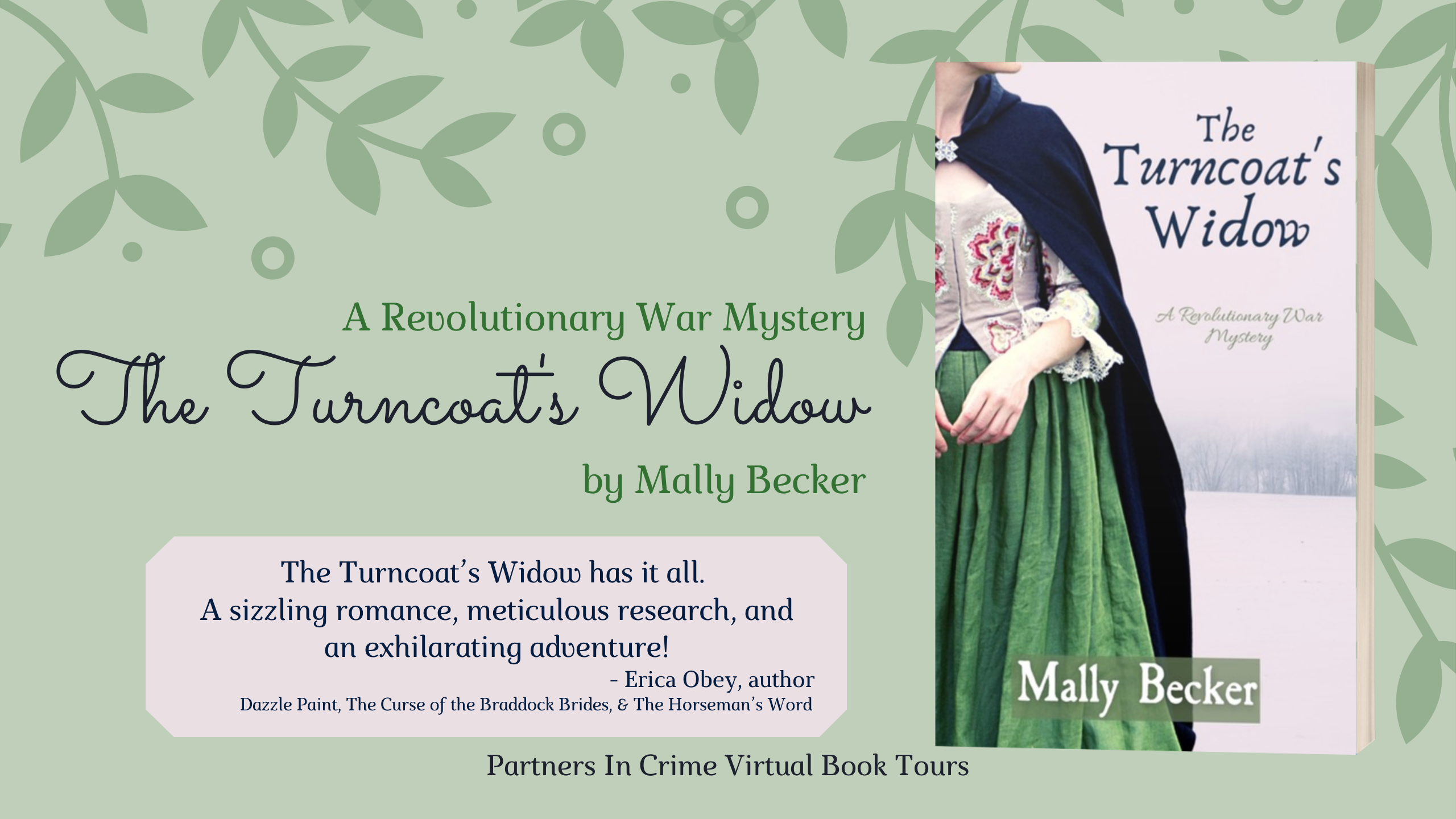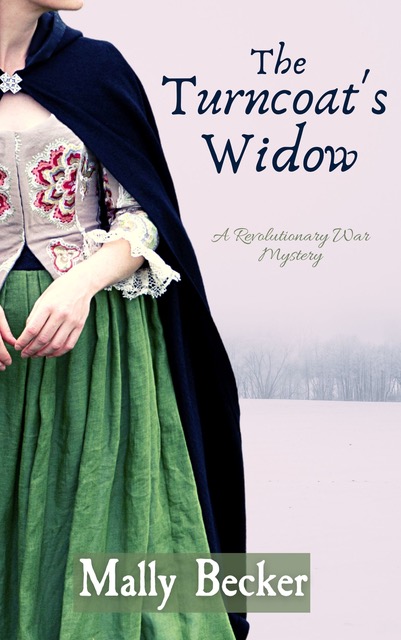
Did George Washington love his wife, Martha?
It’s not a question that’s “top of mind” this cold, covid-filled February. But with Valentine’s Day and Washington’s Birthday just crossed off the calendar, I thought I’d share why I wanted to know and what I discovered.
Set during the darkest days of the War for Independence, my historical mystery, The Turncoat’s Widow, tells the story of General Washington’s most reluctant spy, a young widow who battles time and traitors to uncover a plot that threatens the new nation. Martha Washington plays a small but important role in the final third of my tale, and I needed to write dialogue between the “founding spouses.”
I wondered whether George’s famously stern face might soften when his wife spoke or whether there was a permanent frost in the air whenever they spent time together.
We can’t know for certain, of course. And it doesn’t help that Martha Washington destroyed the couple’s personal correspondence prior to her death.
Luckily, she wasn’t entirely successful. In an inherited desk, Martha’s granddaughter discovered two letters from George wedged behind a drawer.
And it’s the slimmest of postscripts in one of those letters that convinced me the Washingtons’ marriage held real affection.
Let me set the scene. Washington sits in a rented room in Philadelphia in June 1775. He dips his quill pen into a pot of ink and begins a letter to his wife to let her know that Congress has named him Commander in Chief and General of the “United Colonies” army. He tells her of his doubts about whether he is up to the job and writes:
I should enjoy more real happiness and felicity in one month with you, at home, than I have the most distant prospect of reaping abroad if my stay was to be Seven times Seven years.
So a month of happiness at home with Martha, she says, would exceed 49 years of happiness without her. It’s a lovely sentiment … if Washington meant it. People don’t always write what they mean, do they?
I wondered whether Washington’s flowery language was merely an apology for the fact that his new position meant he wouldn’t be heading home to Virginia for quite a while. He went straight from Philadelphia to Boston, where the Battle of Bunker Hill had just been fought.
But my suspicion waned as I read the rest of the letter. The Washingtons were married 16 years when he wrote it, and yet during this week in 1775, with the world clamoring for his attention, he ends his correspondence with this: “… I am with most unfeigned regard, My dear Patcy Yr Affecte [your affectionate] George Washington.”
Oh, that nickname. She was “Patcy” to him. Martha called him her “Old Man,” others reported at the time. There’s nothing in the staid, lifeless portraits of this couple that suggest playfulness. It’s here, though, in this letter, the ghost of a warmer, very human Mr. and Mrs. Washington.
But it was the postscript that fascinated me. In it, he tells Martha that he’s purchased gowns for her of “the prettiest muslin.” He describes their costs, and then, he says, “I wish it may please you.”
I wish it may please you. We can argue about whether Washington’s “P.S.” is romantic. I say it beats roses and chocolate every day of the week.
Washington had just been appointed to one of the most important jobs in North America. His time in Philadelphia would have been filled with political “meet and greets” and preparation for travel to Boston. Other founding fathers and jobseekers would have been clamoring for his attention to gain position, prestige or merely to brag that they’d spoken to General Washington.
Yet he stops to tell his wife about clothing he’s had made for her. He adds details, because her pleasure in the dresses mattered to him, even as his mind must have been focused on the overwhelming task he was about to take up.
It’s a small thing and yet so telling. The postscript says to Martha: You matter, even when the world and my own ambition intrude. In the couple’s brief scenes together in The Turncoat’s Widow, that’s what I try to convey.
I’ve read that Washington was a flirtatious man, that he might have had a crush on other women. No matter. To me that postscript says it all: He loved Martha.

 Recently widowed, Rebecca Parcell is too busy struggling to maintain her farm in Morristown to care who wins the War for Independence. But rumors are spreading in 1780 that she’s a Loyalist sympathizer who betrayed her husband to the British—quite a tidy way to end her disastrous marriage, the village gossips whisper.
Recently widowed, Rebecca Parcell is too busy struggling to maintain her farm in Morristown to care who wins the War for Independence. But rumors are spreading in 1780 that she’s a Loyalist sympathizer who betrayed her husband to the British—quite a tidy way to end her disastrous marriage, the village gossips whisper.
Everyone knows that her husband was a Patriot, a hero who died aboard a British prison ship moored in New York Harbor. But “everyone” is wrong. Parcell was a British spy, and General Washington – who spent two winters in Morristown – can prove it. He swears he’ll safeguard Becca’s farm if she unravels her husband’s secrets. With a mob ready to exile her or worse in the winter of 1780, it’s an offer she can’t refuse.
Escaped British prisoner of war Daniel Alloway was the last person to see Becca’s husband alive, and Washington throws this unlikely couple together on an espionage mission to British-occupied New York City. Moving from glittering balls to an underworld of brothels and prisons, Becca and Daniel uncover a plot that threatens the new country’s future. But will they move quickly enough to warn General Washington? And can Becca, who’s lost almost everyone she loves, fight her growing attraction to Daniel, a man who always moves on?

The Turncoat’s Widow has it all. A sizzling romance, meticulous research, and an exhilarating adventure. Becca Parcell is too independent for both 18th-century Morristown and her feckless English husband. Her individual plight when she is pressed into service as an unwilling spy after her husband’s death reflects the larger situation of colonists during the American Revolution, whose lives were upended by a political fight they cared nothing about. Becker balances the ruthlessness of George Washington and the underhanded charm of Alexander Hamilton with the excesses of the British, as part of a detailed picture of how the colonies were governed during a war that was far from a simple fight between two opposing nations. But historical exactitude is balanced by dashing romance between Becca and Daniel Alloway, the escaped prisoner charged with protecting her, and plot full of bold escapes and twists. A great series debut. I can’t wait for the next installment.
– Erica Obey, author, Dazzle Paint (coming 02/2021), The Curse of the Braddock Brides, and The Horseman’s Word.
An exciting Revolutionary-era thriller with a twisty mystery, great characters, and historical accuracy to boot.
– Eleanor Kuhns,author of the Will Rees mysteries
The Turncoat’s Widow reminds readers that treachery from within and without to our republic were real, and those early days for American independence from the British were fragile, the patriot cause, unpopular. This is a rousing debut novel with insights into the hardships of colonial life, the precarious place of women in society while giving fans of historical fiction a tale with suspense, surprises, and an outspoken and admirable heroine in Becca Parcell. Mally Becker is an author to watch.
– Gabriel Valjan, Agatha and Anthony-nominated author of The Naming Game

 This is a Rafflecopter giveaway hosted by Partners in Crime Virtual Book Tours for Mally Becker. There will be Five (5) winners for this tour. One winner will receive a $20. Amazon.com GC, Two (2) winners will each win a physical copy of THE TURNCOAT’S WIDOW by Mally Becker (U.S. addresses only) and Two (2) winners will each win an eBook copy of THE TURNCOAT’S WIDOW by Mally Becker. The giveaway begins on February 22, 2021, and runs through March 21, 2021. Void where prohibited.
This is a Rafflecopter giveaway hosted by Partners in Crime Virtual Book Tours for Mally Becker. There will be Five (5) winners for this tour. One winner will receive a $20. Amazon.com GC, Two (2) winners will each win a physical copy of THE TURNCOAT’S WIDOW by Mally Becker (U.S. addresses only) and Two (2) winners will each win an eBook copy of THE TURNCOAT’S WIDOW by Mally Becker. The giveaway begins on February 22, 2021, and runs through March 21, 2021. Void where prohibited.
a Rafflecopter giveaway

 Mally Becker is a writer whose historical suspense novel, The Turncoat’s Widow, will be published in February 2021 by Level Best Books. She was born in Brooklyn and began her professional career in New York City as a publicist and freelance magazine writer, then moved on, becoming an attorney and, later, an advocate for children in foster care.
Mally Becker is a writer whose historical suspense novel, The Turncoat’s Widow, will be published in February 2021 by Level Best Books. She was born in Brooklyn and began her professional career in New York City as a publicist and freelance magazine writer, then moved on, becoming an attorney and, later, an advocate for children in foster care.
As a volunteer, she used her legal background to create a digest of letters from US Supreme Court Justices owned by the Morristown National Park. That’s where she found a copy of an indictment for the Revolutionary War crime of traveling from New Jersey to New York City “without permission or passport.” It led her to the idea for her story.
A winner of the Leon B. Burstein/MWA-NY Scholarship for Mystery Writing, Mally lives with her husband in the wilds of New Jersey where they hike, kayak, look forward to visits from their son, and poke around the region’s historical sites.



















What a great post. It’s leaving me wanting to know more.